After the fire went out,
we kept burning.
I confused the embers
in your hair for stardust,
but who was I, then,
to know the log was lit
from the inside,
flush with its own grief?
I’ve buried myself
in the compost heap.
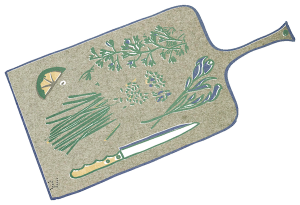
Before the flood swept the lemons away,
there was a garden. How temperamental
the tomatoes were to any change in the weather.
We did best with herbs: rosemary, basil, chives.
While chopping, the cutting board would turn green,
the smell of fresh earth lingering
on the pads of my fingers.
Carefully, I close the door.
The house is thick with echoes.
If I hold my breath, perhaps
my lungs will collapse, or perhaps
the fingers of my ribs will round
like a fist collecting its coin.
Quietly, I turn the lock,
but the latch rejects silence,
its metal groan reverberating
through the bones of the walls.
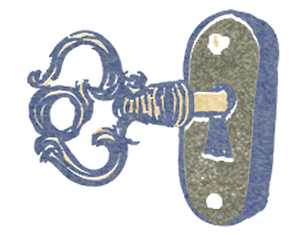
Do you ever wonder about the light on the river,
how it danced beneath the bend in our boat?
How do you remember – with eyes clenched,
pupils pulled back in the darkness of your skull?
Or are they open, unblinking, full of water?
Even snails seek shelter from the flood.
As the streets fill with water, a horde flees
in haphazard clusters, their wet trails
glistening beneath the porch light.
I, too, make this journey toward the light.
I carry my conch on my back,
leave traces of cigarette ash in my wake.
I bury myself in the creases
of the house until I am one with the wood.
I curl my body around my body
into a pulpy spiral until I can feel my heart
beating inside my throat.
Forget about the blood
on the light switch,
the pillow cases.
Forget about the muffled
shuffle of footsteps
on the carpet. Forget
the way a person’s eyes
glaze over after the third glass
of whiskey, the corner
of their lips upturned,
their shoulders poised
for a fight. Forgetting
scratches at the inside
of my mouth, my tongue
torn open by its sharp nail.
I gargle salt water. Wash
all the sheets. Burn sage.
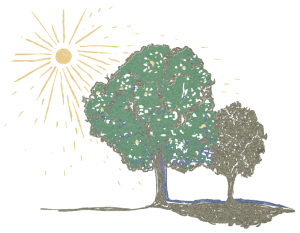
Growing side by side,
eventually,
one tree will overshadow
the other, its branches
extending wide.
The taller tree stretches out
horizontally,
stealing the other’s
sunlight.
How do I stretch
without casting a shadow?
I try to make myself small,
until I don’t.
I try to avoid the sun,
until I don’t.
I imagine a life without brine,
without the smell of freshly cut lumber,
the wood dust sticking to your skin like glitter,
your hair thick with sun and smoke. I imagine
not knowing the barb of a hook, a life
without fish scales the size of my thumb nail
sticking to the bottom of my foot. In this bed
whirls the smell of campfires and smoked meat.
Here, I reach out my fingers and find
your cloudy coattails. I imagine a face
I wish I never saw turn to grimace
and dagger, a face freckled
with tenderness and ache.
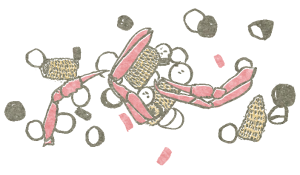
Joy is butter melting in the pan.
The silk of fresh pasta dissolving on the tongue.
Sucking the meat from between the jagged bones
of a turkey’s neck. Licking seasoning off fingertips
during a crawfish boil. The umami
of an all-day gumbo savory on the tongue.
Keep these memories close:
I can still smell the cooking oil
as it popped in the cast iron
after a day paddling
around the lake, tying
fishing line to cypress knees,
and peeling off catfish skins.
My body was sticky
with day old sweat
as the fish sizzled in the pan,
and you lurked through the woods
searching for dry leaves
and sticks for kindling.
Let us not forget:
before the house burned down,
there was a house.
Later, I will wonder
not what I did wrong
but what I did right.
The night swells
and blooms around me,
blue as a bruise.
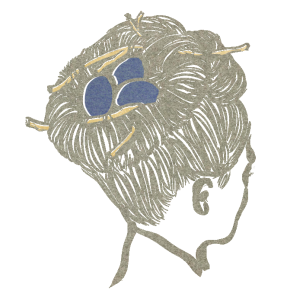
Miles away, Nikita’s voice on the phone
reaches towards mine like a blossoming flower.
“We deserve a love that liberates,” she says,
and the bars begin to crumble. Together, we map
a soft and tender future. I build a house
in the curly nest of her hair.
Now spring has ended,
and I’m all out of questions.
The zucchini plants flowered again
but did not produce any fruit.
I spent the month of June biting the skin
off the inside of my lip
until it was raw as tender meat.
Now my cheeks are dry,
and the summer heat descends
like a stage curtain.
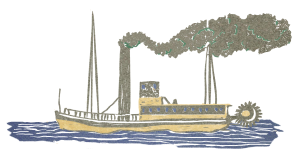
On a night in early October, in the bed of a new lover,
I can hear the moan of the steamboat drift through paper-thin walls.
I think about the river, only a few blocks away,
its mouth wide and gaping open as it carries the north’s rain,
hands full of silt, into the gulf.
Pretend none of it happened: I am twenty-five
and scar-less. I straighten the curls out of my hair
and tear at my cuticles in moments of stillness.
Years later, I will pull the curtains
from my eyes. The sun will be bright,
and I will not yield.
Questions I never ask:
How many kisses will untie
a knotted mouth?
What does it take to repair the body
after a flood?
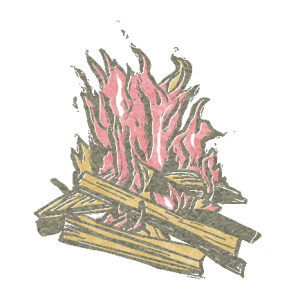
Rising in crescendo,
the flames squeal
as they devour
the last scraps of wood.
Flashes of red
and white and green.
Slowly, the world settles back
to a familiar hue. The yellow yawn
of morning slips under the covers
and becomes a gentle orange promise again.
Even the garden soil is somehow browner
as the squirm of compost worms
pinks through the dirt. I grow kale
and tomatoes from seed. I watch them sprout
and sway as if waving, “Hello.”
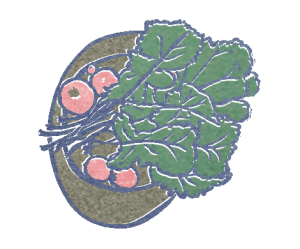
The sweet pleasure of a new mouth. Its soft surprise.
How easily the silk of desire slips back on the skin.
I remember how to be tender: a man lifts my chin
and kisses me with open eyes.
Unravel this:
the way the body
insists on breath
even underwater.
The crispness
of that first
unfettered sigh.
Very soon it will be a faraway
memory. It’s spring again, and the world is closing in.
Home becomes a haven.
Ross and I repaint all the walls. We buy a hammock
and curl around each other’s bodies like cucumber tendrils.
We contemplate what to do with the tree,
its limbs scattered in the yard.
Friends take what’s left of the lumber
to lacquer the logs and make small tables.
We burn the rest.
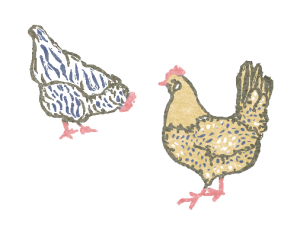
When the fire went out,
I mourned the tree
before sweeping its ashes
into a hole.
At night,
the chickens roost
in its freshly tilled soil.
Expect nothing less; expect better. Wait for the one who will gather you like petals and lay you
gently on the bed. The one with delicate hands who tends to the house plants like children, cooing
into their soft green ears.
You plant a new tree in the yard, a satsuma.
It will be years before you harvest its first fruit,
but you are patient, aren’t you?
You prune its leaves as you wait.
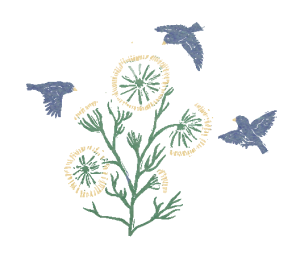
Zooming above, the migratory birds
arrive in clusters, marking the beginning
of summer as they make their way back north.
The dill I planted reaches upward
in tiny spindly arms, their bristly heads
swaying in the breeze, while the first sparks
of red sprout from the tomato vine.
We pop the tiny bulbs straight in our mouths,
the sweet juice bursting on our tongues.
Tiana Nobile is a Korean American adoptee, Kundiman fellow, and recipient of a Rona Jaffe Foundation Writers’ Award. A finalist for the National Poetry Series and Kundiman Poetry Prize, her writing has appeared in Poetry Northwest, the New Republic, Guernica, and the Texas Review, among others. Her full-length poetry debut, Cleave, is forthcoming in spring 2021 from Hub City Press. She lives in New Orleans, Louisiana. Nobile’s poem “Megafauna” was featured in the Imaginary South Issue (vol. 26, no. 4: Winter 2020).

